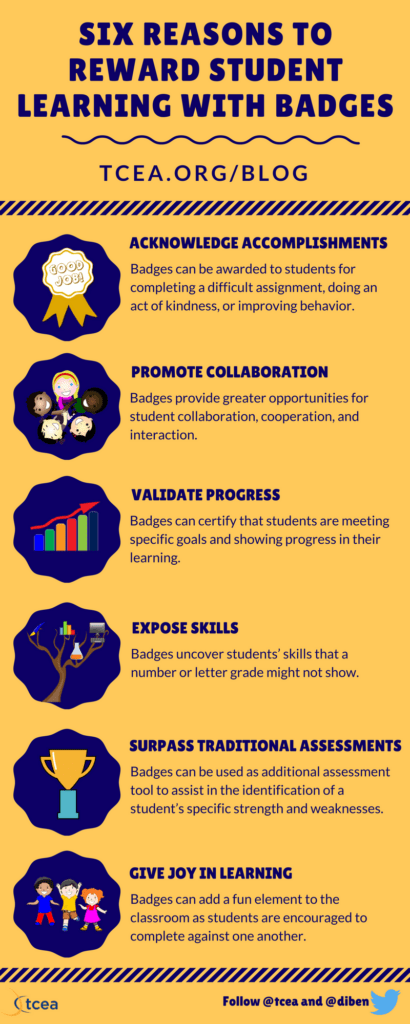All of us at times are required to be leaders, whether that is in the classroom or library, on a campus, or at the district level. We have to help others understand the vision of what is needed and convince them to make the journey with us. We have to be able to form strong teams and foster collaboration and communication. These are skills that can be strengthened and fine tuned. As Aristotle said:
We are what we repeatedly do. Excellence, therefore, is not an act but a habit.
Leadership TCEA
To help enhance the skills necessary for effective leadership, TCEA is offering a free-to-members, one-day workshop on Saturday, May 4 in Austin. Leadership TCEA is designed to help educators develop and enhance essential leadership skills for their futures. Ideal candidates for this program include those dedicated to growing within the profession and learning strategies to be a strong and effective leader in schools, districts, or even within the TCEA organization.
Why You Should Attend
The program’s benefits to you include:
- Dedicated time to spend learning more about your strengths and how to improve in those areas in which you are weaker
- Professional learning on leadership style and communication, building a strong team, collaboration for effective engagement, planning for the future, acting as a change agent, and much more
- Time to interact, network with, and learn from your peers
Special Interest Group (SIG) officers will also be able to take advantage of dedicated time during the event to plan innovative activities for their SIG members for the coming year.
There is no charge for Leadership TCEA and it is open to any member. And a fun lunch will be provided. Prepare yourself to lead others to ensure success for all students!




 Taking on new skills and the learning curve that goes along with it may be a frightening and/or frustrating task for your staff members. When possible, always try to set them up for success. They may not know how to break the skill down into manageable pieces, for example, so you may need to help model that aloud. Depending on the skill, you may also need to provide additional resources or training to help them become confident and successful. Put yourself in their position and consider what might be helpful in order to stretch…without breaking.
Taking on new skills and the learning curve that goes along with it may be a frightening and/or frustrating task for your staff members. When possible, always try to set them up for success. They may not know how to break the skill down into manageable pieces, for example, so you may need to help model that aloud. Depending on the skill, you may also need to provide additional resources or training to help them become confident and successful. Put yourself in their position and consider what might be helpful in order to stretch…without breaking. Talk to your staff about the additional tasks and the need to grow and take on new skills. Having an open discussion can alleviate some of the fear that comes from encountering something new, different, or unknown. When possible, ask questions to find out what they think. They may have a completely different understanding based on their past experiences (or lack thereof). Open dialogue should not be constrained to a single staff meeting however; encourage the conversation to continue. Let your staff know that you want to hear their ideas. Though you may have no control over the growth that needs to take place, you do have a great deal of influence on how well they develop capacity to meet that need.
Talk to your staff about the additional tasks and the need to grow and take on new skills. Having an open discussion can alleviate some of the fear that comes from encountering something new, different, or unknown. When possible, ask questions to find out what they think. They may have a completely different understanding based on their past experiences (or lack thereof). Open dialogue should not be constrained to a single staff meeting however; encourage the conversation to continue. Let your staff know that you want to hear their ideas. Though you may have no control over the growth that needs to take place, you do have a great deal of influence on how well they develop capacity to meet that need. When talking with a friend about building capacity in his team, he mentioned that he has a few people that can juggle six or seven major things, and he has one person that can only juggle four. No matter how much he wants the four-task-juggler to grow into a five-task-juggler, he realizes that it just isn’t going to happen. And the best thing he can do is recognize it and use it to both his and his staff member’s advantage. In doing so, he needs to set realistic expectations for each individual staff member. Just because you and I find certain tasks easy to juggle doesn’t mean that a another staff member will obtain the skill with ease. If we think back over our experiences, we probably had much more time (and resources) to build capacity in that area. With that in mind, consider how you can adjust expectations, but still arrive at the required destination.
When talking with a friend about building capacity in his team, he mentioned that he has a few people that can juggle six or seven major things, and he has one person that can only juggle four. No matter how much he wants the four-task-juggler to grow into a five-task-juggler, he realizes that it just isn’t going to happen. And the best thing he can do is recognize it and use it to both his and his staff member’s advantage. In doing so, he needs to set realistic expectations for each individual staff member. Just because you and I find certain tasks easy to juggle doesn’t mean that a another staff member will obtain the skill with ease. If we think back over our experiences, we probably had much more time (and resources) to build capacity in that area. With that in mind, consider how you can adjust expectations, but still arrive at the required destination.